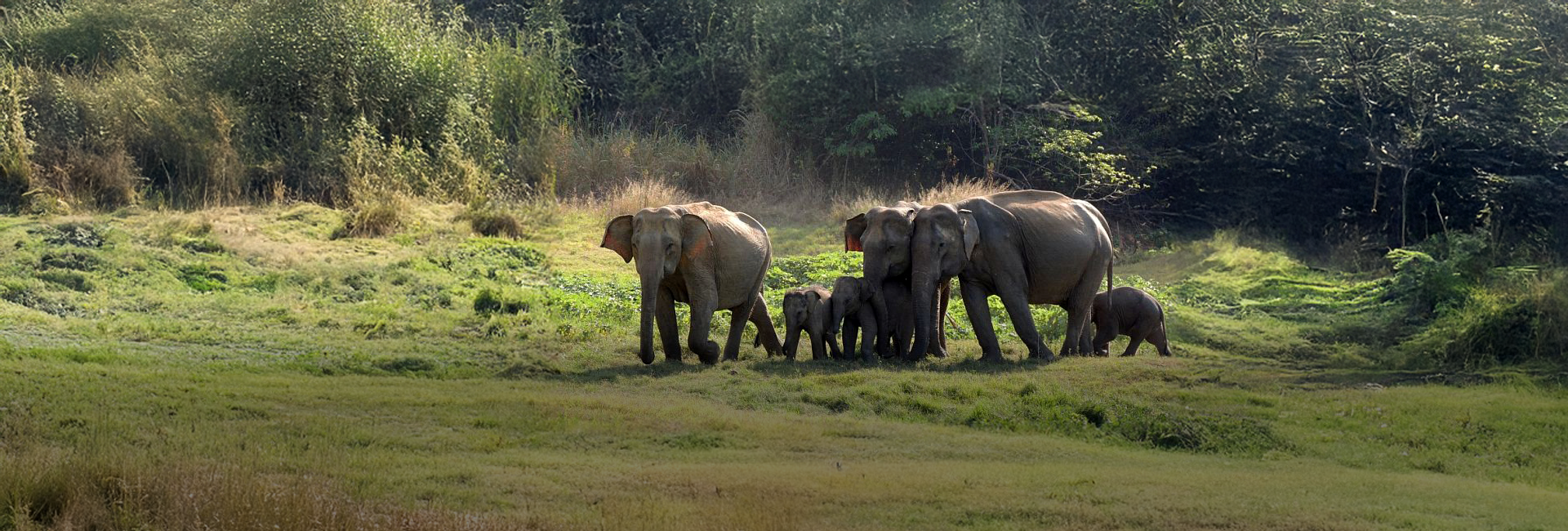It seems as if summer is finally starting to show its face, and as the warmer weather approaches, we bet that most have you have thought about heading away on your holidays, right? In that case, stick with us – we’re here to tell you why you should head to Sri Lanka for your summer break.
Sri Lanka is a spectacular country with so much to offer: from stunning emerald landscapes of tea plantations rolling for miles around, to the inhabitants that find their homes in all corners of this culture-rich haven. But one of the main stand-out points that Sri Lanka can safely boast, is its phenomenal wildlife. Leopards, monkeys, buffalo and sloth bears each find their homes in Sri Lanka’s wilds, but perhaps the most alluring animal of all is the Asian elephant.
Mighty, gregarious, and yet tragically endangered, the Asian elephant is an animal which desperately needs protecting from the horrific ivory trade, as well as from threats of human-elephant conflict. There are now only between 2000-3000 wild elephants remaining in Sri Lanka, and time is running out to help these captivating giants to survive.
So, how do you play a part in protecting this magnificent species? By paying a visit to Sri Lanka, you’ll have the chance to conduct daily ecological research on elephant populations in the Wasgamuwa Region, with an aim to reduce the conflict between humans and elephants. In addition to making a real difference to the lives of these animals, the opportunity to partake in true conservation efforts (particularly typical methods, such as tracking trails and hide observation) is something that does not come by often, and therefore would make for a meaningful and lifechanging practice for yourself, the animals, and even the local villagers close by to the project.
Since we’re heading into one of the better times of the year to visit Sri Lanka, the likelihood of witnessing an abundance of amazing animals is at an annual high. The European summer months happen to coincide with the dry season in the region, meaning more animals gather to converge on the available resources of food and water. Around this time, too, many of the babies born in April and May will be attempting to live on their own – so look out for juvenile elephants roaming the area!
To the elephants, summer means ‘harvesting season’, which in turn means that they tend to raid fields and homes in search of food. More than being just an annoyance to surrounding villagers, the elephant’s hunt for food may also translate to danger if they run into a less-than-understanding human being. To avert any chance of conflict, the project starts work on an activity known as Pachydrone: they will use drones to guide the elephants away from fields and villages, by equipping the machines with LED lights which are visible in the sky at night (a key time in which raids tend to occur.) This is an activity that volunteers can join, even having the ability to fly the drones themselves if they have prior experience in doing so. This is a new and exciting activity which does not take place throughout the rest of the year, so anybody looking for a truly unique insight to the elephants’ lifestyles (and the conservation efforts to protect the animals), this is something that is not to be missed.
Finally, The Great Elephant Project has recently added a new activity to their itinerary: known as the Carnivore Project, its aim is to gather information about a relatively illusive group of mammals, allowing conservationists to develop measures for their long-term protection. Alongside the project’s team, the volunteers will also be working in tandem with S.P.E.C.I.E.S. (The Society for the Conservation of Endangered Carnivores and their International Ecological Study) to set up remote cameras, as well as periodically checking the cameras to catch a closer glimpse of animals in the region. There have been some incredible and exciting images captured of leopards captured by the cameras in the past, so keep your eyes peeled and see which animals you might spot!
Want to get involved? Head to the project page now, and make the most of your time in the country by also checking out these tours!

















